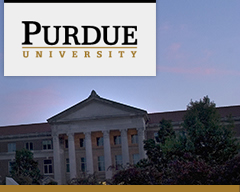Description
Social media (blogs, wikis, video, and a digital authoring culture) has emerged in the last decade as a dominant feature of the technology landscape, especially for our current generation of digital-native students. Leveraging these tools for higher education in general, and engineering education in particular, should be of immediate and pressing concern for engineering educators. This discussion summarizes the HigherEd 2.0 project, the creative convergence of higher education and “web 2.0” technologies into a system for education that: (i) deploys specific social media technologies to support student learning; (ii) leverages the efficiencies of those tools for flexible, customized learning; and (iii) promotes the social features of learning and empowers students to author sharable course materials for their peers. This discussion presents evaluation data about the project, including both qualitative and quantitative outcomes, and correlates student usage of the social media elements of the course with their academic performance. This wide-ranging, multi-institution project holds interesting lessons and promising suggestions for using social media in higher education settings.
Recommended Citation
Berger, E. (2014). HigherEd 2.0: Using social media in engineering education. In A. Bajaj, P. Zavattieri, M. Koslowski, & T. Siegmund (Eds.). Proceedings of the Society of Engineering Science 51st Annual Technical Meeting, October 1-3, 2014 , West Lafayette: Purdue University Libraries Scholarly Publishing Services, 2014. https://docs.lib.purdue.edu/ses2014/ese/gese/3
HigherEd 2.0: Using social media in engineering education
Social media (blogs, wikis, video, and a digital authoring culture) has emerged in the last decade as a dominant feature of the technology landscape, especially for our current generation of digital-native students. Leveraging these tools for higher education in general, and engineering education in particular, should be of immediate and pressing concern for engineering educators. This discussion summarizes the HigherEd 2.0 project, the creative convergence of higher education and “web 2.0” technologies into a system for education that: (i) deploys specific social media technologies to support student learning; (ii) leverages the efficiencies of those tools for flexible, customized learning; and (iii) promotes the social features of learning and empowers students to author sharable course materials for their peers. This discussion presents evaluation data about the project, including both qualitative and quantitative outcomes, and correlates student usage of the social media elements of the course with their academic performance. This wide-ranging, multi-institution project holds interesting lessons and promising suggestions for using social media in higher education settings.
